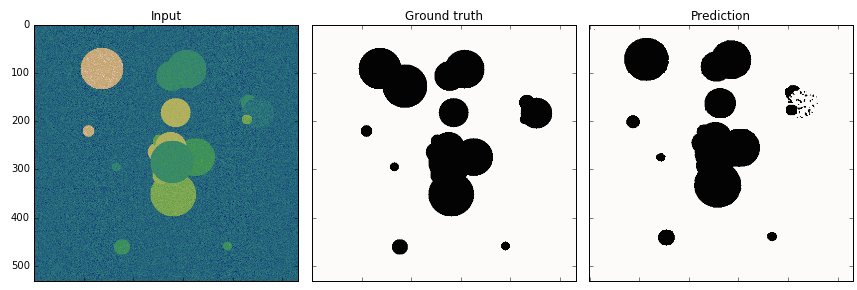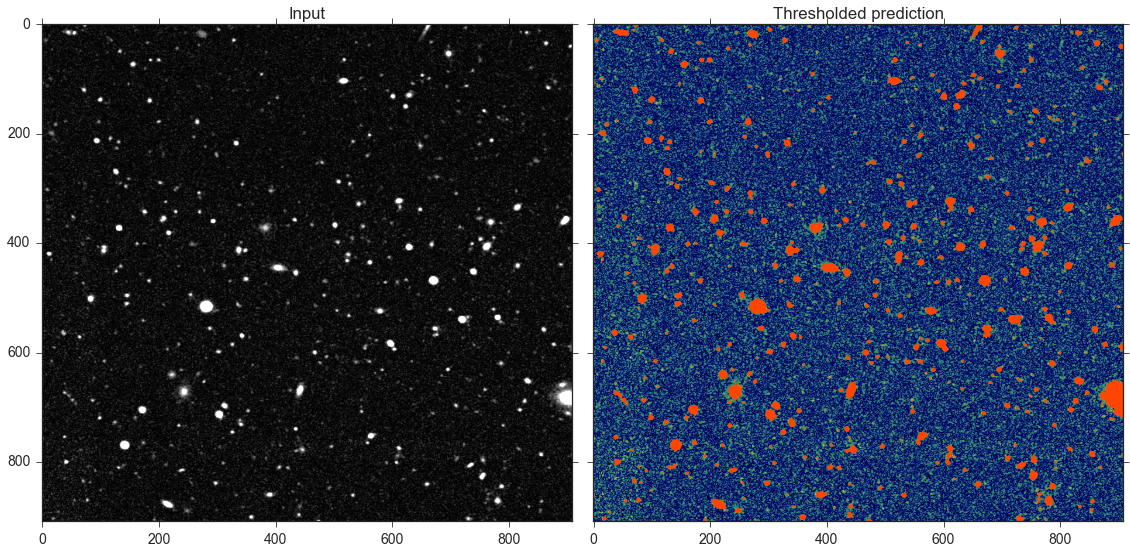
This is a generic U-Net implementation as proposed by Ronneberger et al. developed with Tensorflow 2. This project is a reimplementation of the original tf_unet.
Originally, the code was developed and used for Radio Frequency Interference mitigation using deep convolutional neural networks .
The network can be trained to perform image segmentation on arbitrary imaging data. Checkout the Usage section, the included Jupyter notebooks or on Google Colab for a toy problem or the Oxford Pet Segmentation example available on Google Colab.
The code is not tied to a specific segmentation such that it can be used in a toy problem to detect circles in a noisy image.
To more complex application such as the detection of radio frequency interference (RFI) in radio astronomy.
Or to detect galaxies and star in wide field imaging data.
The architectural elements of a U-Net consist of a contracting and expanding path:
As you use unet for your exciting discoveries, please cite the paper that describes the package:
@article{akeret2017radio,
title={Radio frequency interference mitigation using deep convolutional neural networks},
author={Akeret, Joel and Chang, Chihway and Lucchi, Aurelien and Refregier, Alexandre},
journal={Astronomy and Computing},
volume={18},
pages={35--39},
year={2017},
publisher={Elsevier}
}



